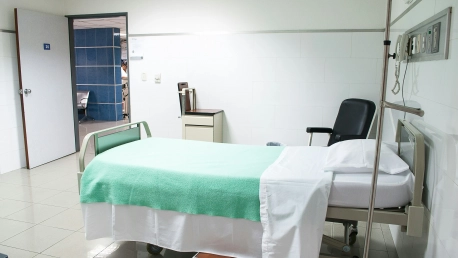In regions engulfed by conflict, medical personnel and facilities frequently become collateral damage, a dire situation that is urgently being addressed by the World Health Organization (WHO). The call to protect healthcare services comes from a significant authority within the organization, WHO Director-General Tedros Adhanom Ghebreyesus, who emphasizes the need for collective global action to defend these essential services. The protection of health workers and infrastructure is not just a moral imperative but also a critical component of broader humanitarian efforts. Ensuring their safety guarantees that those injured in conflicts can receive the medical attention necessary, and healthcare systems can continue to operate despite the chaos of war. The international community is reminded that the Geneva Conventions and various human rights laws dictate the safeguarding of medical services during warfare, and thus such protections should be vigorously enforced and respected by all parties involved in conflicts.
The Alarming Targeting of Medical Services
Escalating Attacks on Health Workers
Health care workers and their facilities are increasingly under siege as conflicts flare globally, a dire situation underscored by WHO data. In hotspots like Gaza, Sudan, and Ethiopia, deliberate attacks are mounting. These incidents go beyond physical harm, inflicting deep mental trauma on the enduring medical staff and the communities they serve. The disturbing number of WHO reports, with over 1,400 attacks resulting in upwards of 700 fatalities, marks a continuing and appalling pattern. Such strikes do more than end lives; they dismantle vital health infrastructures, particularly critical in times of turmoil. This alarming escalation not only jeopardizes immediate medical support but also the long-term well-being of affected populations. The deteriorating trend of violence against health care settings is a profound concern for global health and human rights advocates.
International Human Rights and Health Care
In light of increasing concerns regarding the protection of health facilities and staff in conflict zones, the international community has been urged to uphold human rights standards. The UN High Commissioner for Human Rights, Volker Türk, stressed the significance of honoring the Universal Declaration of Human Rights, specifically the provisions safeguarding medical services during war. These protections are enshrined not just as ethical imperatives but as legal obligations under international law. Disregard for these legal frameworks represents a serious challenge to international peace and the well-being of individuals. Maintaining the sanctity of healthcare in wartime is essential, and the ongoing breaches of these protections undermine efforts to foster global stability and demonstrate a disregard for human rights that affects the welfare of all. The call to respect these norms is a reminder of the international community’s collective responsibility to prioritize human health and dignity even amidst conflict.
Combating Climate Change and Health Challenges
Impact of Climate Change on Health Systems
The World Health Organization’s Director-General and global health leaders are raising awareness about the dire health repercussions of climate change in addition to the devastation caused by conflicts. Environmental calamities, including increasingly common floods and droughts, are overwhelming not only to those directly affected but also to the healthcare systems that serve them. Both Tedros and the United Nations’ High Commissioner for Human Rights have underscored the critical necessity for a resilient global health coverage system that is equipped to manage the severe impacts of both armed disputes and environmental crises. The call to action underscores the importance of adapting our health infrastructure to handle the complex demands of climate change while also considering the strife caused by human conflicts, to ensure a health system robust enough to support those in need under such challenging conditions.
Universal Health Coverage as a Human Right
Türk underscores that the pursuit of universal health coverage is a basic human right, not a political choice. In the light of climate change exacerbating health emergencies, it is more crucial than ever for governments to ensure that their health systems are robust, resilient, and adaptable. Budgetary allocations toward universal health coverage are investments in humanity’s collective future. There’s a pressing need for a dovetailing effort between WHO and the UN human rights office to forge pathways that bolster global health strategies against the backdrop of these modern challenges.The unifying message from global health leaders is clear: respect and protect health services in all conditions, particularly during conflicts, and address the health threats posed by climate change. This clarion call advocates for change that can shape better outcomes for the most vulnerable among us.









